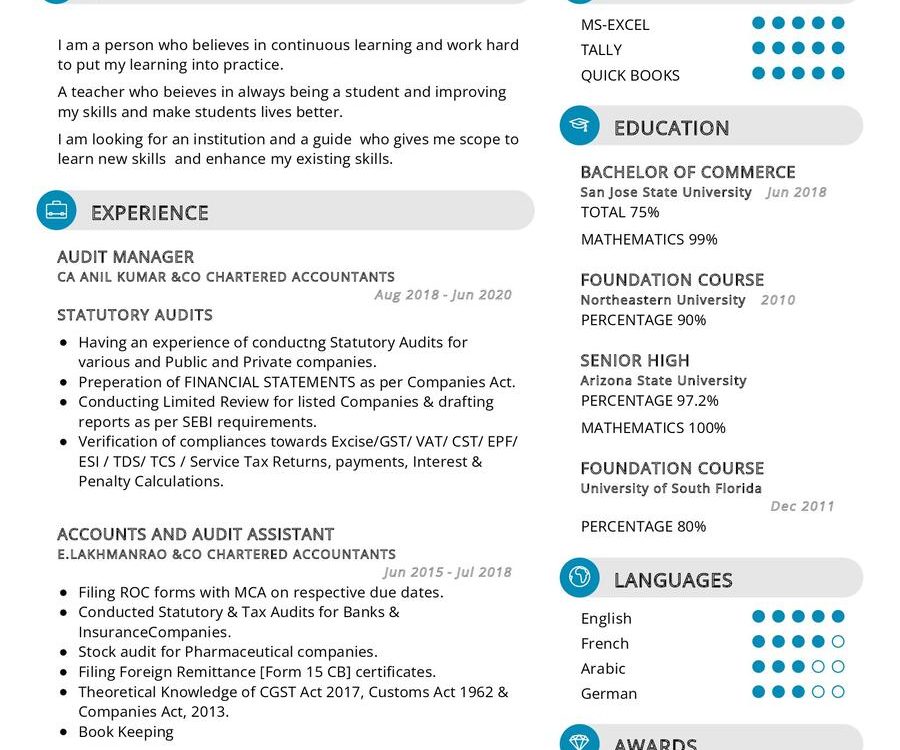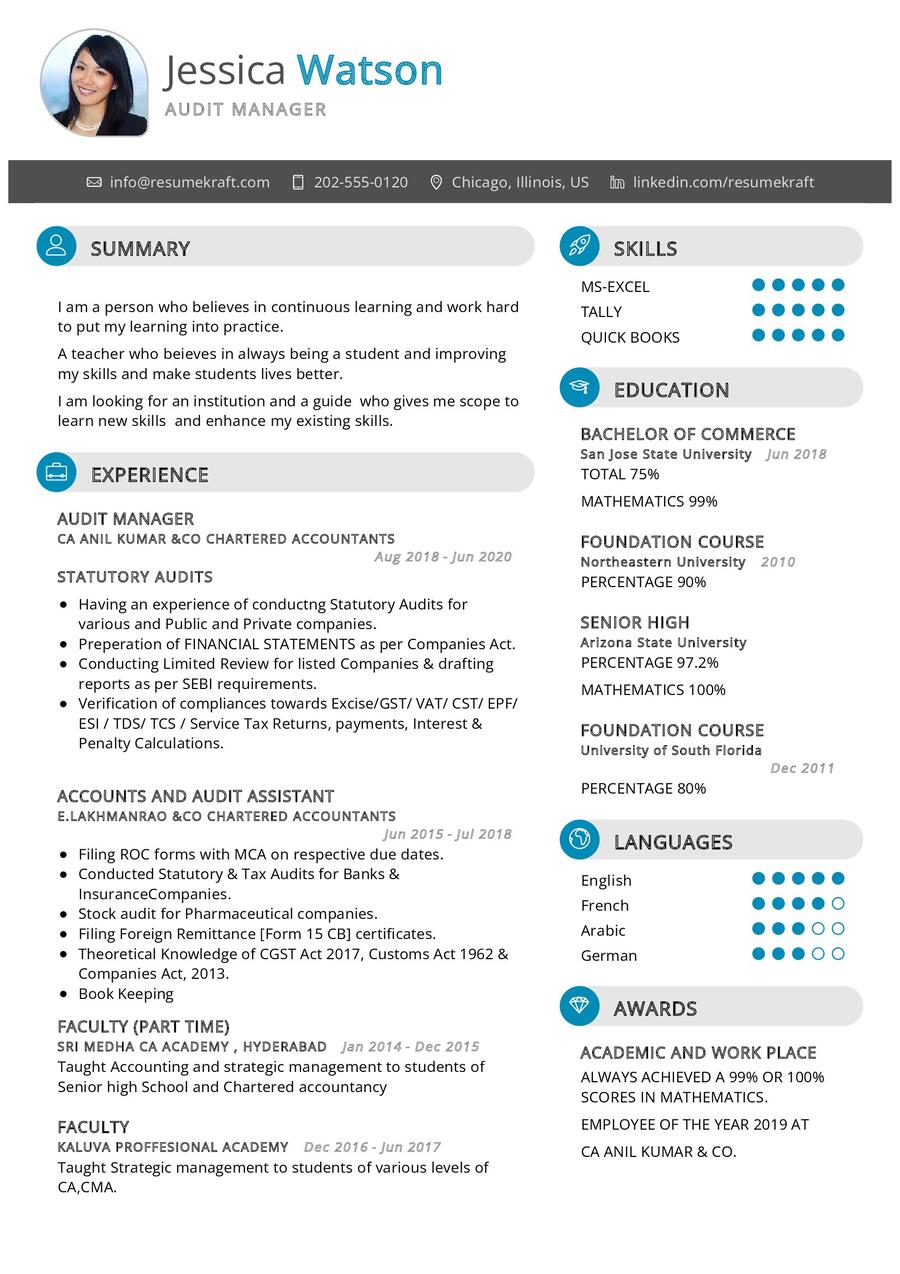Exploring the Role of an Audit Manager
Embarking on a journey as an Audit Manager requires a unique blend of financial expertise, analytical skills, and leadership capabilities. In today’s dynamic business landscape, the role of an Audit Manager is more crucial than ever. Let’s delve into the intricacies of this position, exploring the responsibilities, skills, and qualifications that define a successful Audit Manager.
What Does an Audit Manager Do?
As an Audit Manager, you play a pivotal role in ensuring the financial integrity and compliance of an organization. Your responsibilities go beyond number crunching; you are a strategic thinker, a leader who guides the audit team towards success. Let’s unravel the multifaceted role of an Audit Manager, a position that demands a deep understanding of financial processes, regulatory frameworks, and effective team management.
An Audit Manager oversees the entire audit process, from planning and risk assessment to execution and reporting. They work closely with internal and external stakeholders, ensuring that financial systems and controls are robust and in compliance with industry standards and regulations. Effective communication and leadership skills are paramount as Audit Managers guide their teams through complex audits, providing valuable insights to improve organizational efficiency.
Key Qualifications and Educational Background
Stepping into the role of an Audit Manager requires a solid foundation in finance, accounting, or a related field. Here are the key qualifications and educational background that pave the way for success:
- A Bachelor’s or Master’s degree in Accounting, Finance, or a relevant field, demonstrating a strong academic foundation.
- Professional certification such as Certified Public Accountant (CPA) or Chartered Accountant (CA) is often preferred, showcasing expertise and commitment to the field.
- Several years of experience in auditing or accounting, with a progressive increase in responsibilities.
- In-depth knowledge of auditing standards, financial regulations, and industry best practices.
- Leadership and managerial skills, honed through experience or relevant training programs.
Continuous learning and staying updated with the latest developments in accounting and auditing are essential for success in this dynamic role.
Responsibilities of an Audit Manager
The role of an Audit Manager is multifaceted, encompassing various responsibilities that contribute to the financial well-being and compliance of an organization. Let’s delve into the core responsibilities that define this role:
- Leading and managing audit engagements, ensuring they are conducted efficiently and in accordance with established standards.
- Developing audit plans and risk assessments, identifying areas of concern and implementing strategies to mitigate risks.
- Providing guidance and mentorship to audit team members, fostering a collaborative and high-performing team culture.
- Reviewing and analyzing financial statements and reports, ensuring accuracy and compliance with accounting principles.
- Collaborating with internal stakeholders to implement process improvements based on audit findings.
- Communicating audit results to senior management and offering strategic recommendations for improvement.
- Staying abreast of changes in financial regulations and industry standards, ensuring the organization remains compliant.
Each responsibility is a thread in the fabric of an Audit Manager’s role, weaving together financial expertise, analytical skills, and leadership acumen.
Audit Manager CV Writing Tips
Crafting a compelling CV is essential for standing out in the competitive job market. Here are some tips to help you create a standout Audit Manager CV:
- Highlight your leadership experience, showcasing instances where you led audit teams to success.
- Detail significant audits you have managed, emphasizing the impact on the organization’s financial health and compliance.
- Quantify your achievements, using metrics to demonstrate the success of your audit projects.
- List relevant certifications and training programs, demonstrating your commitment to professional development.
- Customize your CV for each application, aligning it with the specific requirements of the role.
Remember, your CV is your professional story, and it should reflect your expertise, accomplishments, and potential as an Audit Manager.
Audit Manager CV Summary Examples
Your CV summary is the opening statement of your professional journey, setting the stage for what follows. Here are some examples to inspire you:
- “Results-driven Audit Manager with over 10 years of experience, skilled in leading high-impact audits that enhance financial controls and compliance.”
- “Detail-oriented Audit Manager with a proven track record in risk assessment and mitigation, guiding teams to achieve excellence in financial audits.”
- “Experienced Audit Manager adept at managing complex audits, delivering strategic insights that drive organizational improvements and efficiency.”
Your CV summary is your chance to make a strong first impression, showcasing your expertise and the value you bring as an Audit Manager.
Building a Strong Experience Section for Your Audit Manager CV
Your experience section is the core of your CV, narrating your professional journey and highlighting your accomplishments. Here are some examples to guide you:
- “Led a team of auditors in a fast-paced financial services firm, achieving a 15% improvement in audit efficiency through process enhancements.”
- “Managed the audit of a multinational corporation, identifying and rectifying financial discrepancies, resulting in enhanced financial transparency.”
- “Developed and implemented a risk-based audit approach, reducing audit cycle time by 20% while maintaining thorough examination standards.”
Each experience is a chapter in your professional story, showcasing your ability to navigate complex financial landscapes and drive positive change.
Educational Background for Your Audit Manager CV
Your educational background is the foundation upon which your career stands. Here’s how you can list your educational milestones:
- Master of Business Administration in Finance, XYZ University, an intensive program that deepened financial management skills, 2015.
- Bachelor of Science in Accounting, ABC University, the cornerstone of your accounting expertise, 2012.
- Certified Public Accountant (CPA), a prestigious certification showcasing your commitment to professional excellence, 2016.
Each educational qualification is a testament to your dedication to acquiring knowledge and skills in the field of finance and auditing.
Key Skills for Your Audit Manager CV
Your skill set is your toolbox, equipped with a diverse range of tools that you have honed over the years. Let’s list down the essential skills that an Audit Manager should possess:
Soft Skills:
- Leadership and team management, the ability to guide audit teams towards success.
- Communication and interpersonal skills, the art of conveying complex financial information effectively.
- Problem-solving abilities, the knack for identifying and addressing financial discrepancies and risks.
- Attention to detail, the meticulous approach to ensuring accuracy in financial reporting.
- Adaptability and resilience, the strength to navigate evolving financial landscapes.
Hard Skills:
- In-depth knowledge of financial auditing standards and regulations, a foundation for conducting thorough audits.
- Proficiency in financial analysis and reporting, the ability to interpret complex financial data.
- Experience with auditing software and tools, enhancing efficiency in the audit process.
- Strategic thinking, the ability to provide valuable insights for organizational improvement.
- IT proficiency, familiarity with relevant accounting and auditing software.
Each skill is a tool, aiding you in conducting comprehensive audits and ensuring financial integrity.
Common Mistakes to Avoid When Writing an Audit Manager CV
Avoiding common pitfalls is essential when crafting your CV. Here are some mistakes to steer clear of:
- Using a generic CV for all applications, instead tailor each CV to the specific requirements of the role.
- Focusing solely on job duties, highlight your achievements and the impact of your audits on the organization.
- Underestimating the importance of a cover letter, use it to provide additional context and showcase your motivation for the role.
- Overloading your CV with jargon, ensure it is accessible to a non-specialist audience.
- Skip the proofreading, errors in your CV can create a negative impression of your attention to detail.
Avoiding these mistakes will help you create a CV that stands out and effectively communicates your qualifications and achievements.
Key Takeaways for Your Audit Manager CV
As we conclude this comprehensive guide, let’s recap the key points to keep in mind while crafting your Audit Manager CV:
- Emphasize your leadership experience, showcasing your ability to guide audit teams to success.
- Showcase your technical proficiency, emphasizing your expertise in financial auditing and analysis.
- Detail the strategic initiatives you have spearheaded, demonstrating your ability to provide valuable insights for organizational improvement.
- Include a section on continuous learning, showcasing relevant certifications and training programs.
Finally, feel free to utilize resources like AI CV Builder, CV Design, CV Samples, CV Examples, CV Skills, CV Help, CV Synonyms, and Job Responsibilities to create a standout application and prepare for the Audit Manager job interview.


